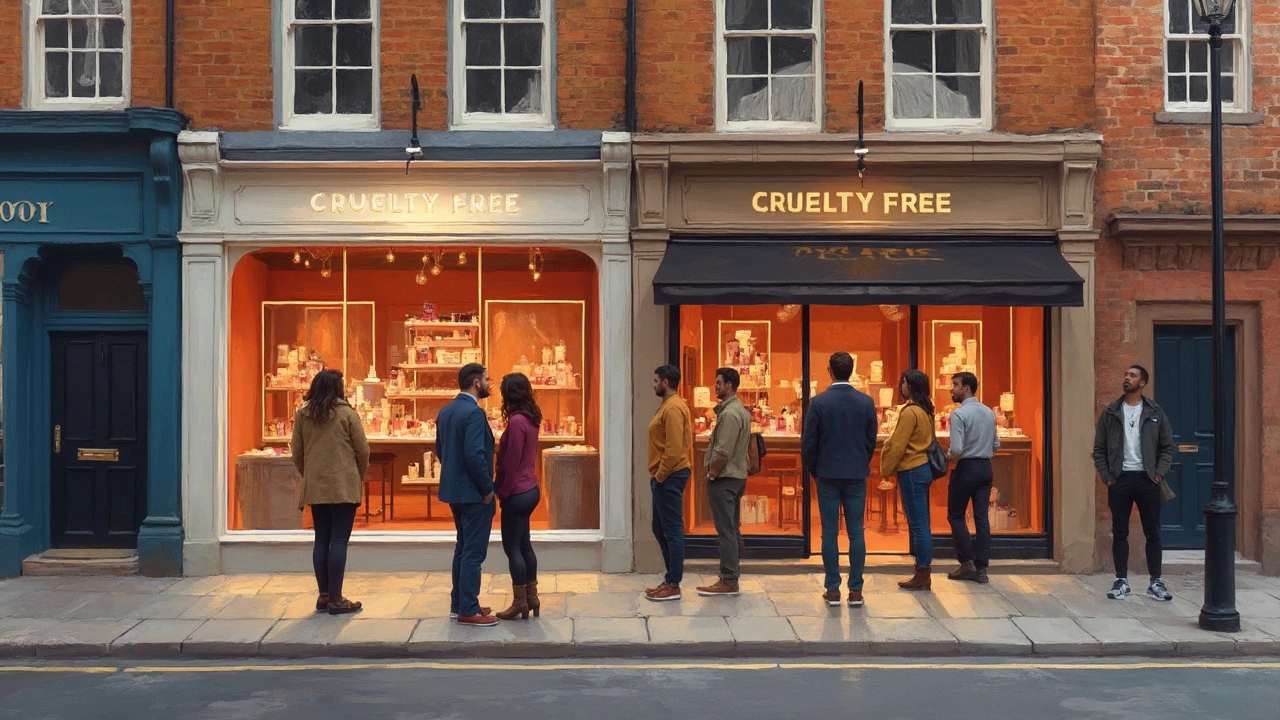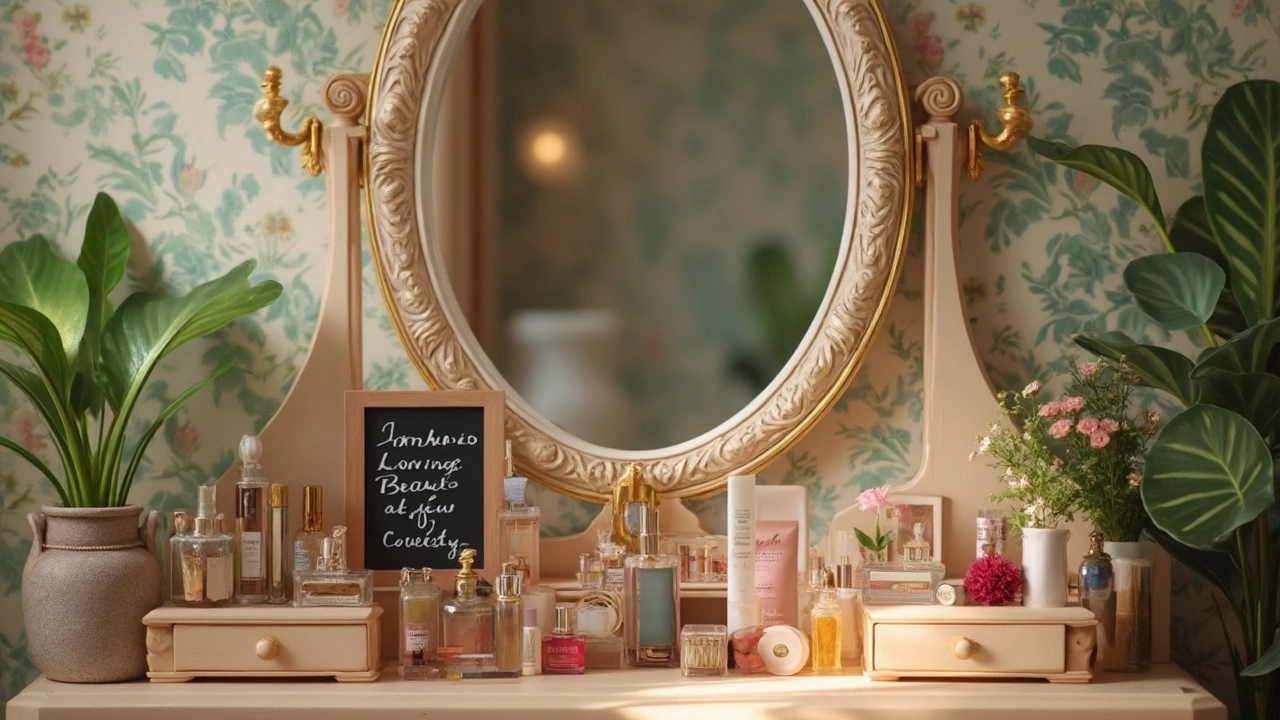Ever wondered if your favorite beauty brand, Revlon, tests on animals? You're not alone. Many makeup fans are increasingly curious about whether the products they're using are cruelty-free. Today, the demand for ethical beauty choices is transforming the makeup industry.
Revlon has been a household name for decades, offering everything from lipsticks to foundations. But when it comes to cruelty-free status, the waters can get a bit murky. So, is Revlon cruelty-free, or do they still conduct animal testing? Let's break it down.
Cruelty-free beauty means that no animals were harmed in the development or testing of a product. This is a big deal for those who care about animal welfare. Surprisingly, not all brands are clear about their practices, leaving customers confused. Revlon's stance on animal testing has evolved, but it's essential to dig into the details to understand where they truly stand today.
- Understanding Cruelty-Free
- Revlon's Stance on Animal Testing
- Certifications and Labeling
- Why Choose Cruelty-Free Brands
- Tips for Ethical Beauty Shopping
Understanding Cruelty-Free
When you see a product labeled as cruelty-free, it means that the final product and its ingredients weren’t tested on animals. Sounds simple, right? But there’s more to it.
Many companies might claim to be cruelty-free, but it's vital to check whether they really are. For instance, some brands might avoid animal testing themselves but could still buy ingredients from suppliers who do test on animals. Sneaky, huh?
Why It Matters
Cruelty-free products are crucial for animal welfare and ethical consumerism. No one wants to imagine cute, innocent animals suffering for makeup. Plus, with so many alternatives available today, there’s just no need for it.
Common Certifications
To be sure you’re picking genuinely cruelty-free products, look for certifications. Here are some popular ones:
- Leaping Bunny: Global recognition for cruelty-free products.
- PETA's Beauty Without Bunnies: Another trusted certification.
- Choose Cruelty-Free (CCF): Australian-based, strict guidelines.
These logos help you easily identify brands that are committed to not using animal testing at any stage.
Navigating the Gray Areas
Watch out for brands that sell in China, as Chinese regulations traditionally required animal testing. However, shifts in policy mean that some non-special-use cosmetics are now exempt from mandatory animal tests here.
So, when assessing a company's cruelty-free claim, consider if they operate in countries with animal testing requirements. Doing a quick online check or sticking to certified brands can help make the right choice.
Revlon's Stance on Animal Testing
When it comes to their policies on animal testing, Revlon has had a somewhat rocky history. For years, the brand was listed among companies that were not considered cruelty-free. This was mainly due to their participation in markets that required animal testing, such as China.
Recently, Revlon announced some changes in its policies, aiming to shift toward more ethical practices. They claim to have stopped conducting animal testing within their operations, but the devil is in the details. The issue lies in the fact that Revlon products are still sold in markets where animal testing might be a legal requirement.
Understanding the Loophole
Many consumers assume that a brand which labels itself as cruelty-free does not engage in any animal testing at all. However, there's a caveat. Brands that sell in places like mainland China may be subject to mandatory tests imposed by local laws. This makes it tricky to define 'cruelty-free' when products might still undergo tests after leaving the company's hands.
Revlon's situation reflects this gray area. The company has ceased testing in their own facilities, but by choosing to distribute in such markets, questions remain about their overall status.
Certifications and Transparency
Despite the complexities around the term, certifications can help guide consumers through the maze. Revlon is notably missing from lists by key certifiers like Leaping Bunny or PETA, which can cast doubts on their cruelty-free claims. If you're looking for transparency and verification, these certifications are generally trusted by animal welfare advocates.
For those navigating the delicate balance between enjoying favorite beauty products and making ethical choices, keeping tabs on a brand's current policies and market actions is crucial.
Current Consumer Opinions
There's a growing movement among beauty consumers who prioritize transparency and ethical testing methods. Social media is buzzing with people calling out companies for any lack of clarity. Brands, including Revlon, facing such scrutiny are now more pressured to maintain up-to-date ethical standards and communicate clearly with their audience.

Certifications and Labeling
When it comes to spotting cruelty-free products, certifications are crucial. They give consumers peace of mind that what they're buying wasn't tested on animals. But not every label out there is meaningful. Jumping through certification hoops can be pricey, so some brands skip it altogether, even if they don't test on animals.
For those keen on finding Revlon cruelty-free products, it's important to know about the reliable labels. The Leaping Bunny and PETA's Beauty Without Bunnies are considered the gold standards. If you spot their logos on packaging, it's a good sign the brand has been vetted.
Understanding the Certifications
Leaping Bunny: This certification involves a strict auditing process. Brands must not only assure they don't test on animals, but also verify that their suppliers aren't doing it either. It's about the entire supply chain being animal-friendly.
PETA's Beauty Without Bunnies: Companies can be on PETA's list by committing not to conduct, commission, or pay for any tests on animals for ingredients, formulations, or finished products anywhere in the world. While PETA does require a written agreement, the process is generally less rigorous than Leaping Bunny.
Revlon isn't currently listed under either of these certifications. Despite public statements suggesting a commitment to ending animal testing, their long-standing reach in markets with animal testing requirements muddles the waters.
Why Labeling Matters
Labels act like a quick guide when you're hunting for ethical beauty products. They let you make informed choices without needing to research every product on the spot. While certifications are great, they're not the only keys to making ethical choices. Being aware and asking questions is just as valuable.
In a survey last year, about 29% of consumers said they look for specific labels before buying, so it's clear they play a big role in decision-making.
Why Choose Cruelty-Free Brands
Making the switch to cruelty-free makeup isn't just a trend; it's making a statement. By choosing products that don't involve animal testing, you're voting with your wallet for a more ethical beauty industry.
Animal Welfare
First and foremost, supporting cruelty-free brands means you're standing up for animal rights. Countless animals are spared from testing procedures that can be painful and inhumane. Every time you opt for a cruelty-free alternative, you're helping reduce the demand for animal testing.
Consumer Demand and Market Trends
Brands are realizing that people care about where their products come from. Globally, there's a massive push toward cruelty-free options. A recent survey indicated that over 70% of consumers prefer products labeled as cruelty-free. This shift is encouraging more brands to change their policies.
Better Ingredients, Healthier Choices
Cruelty-free products often come with cleaner, safer ingredients—perfect for those with sensitive skin or allergies. Many cruelty-free brands also focus on natural or vegan options, which can be gentler on your skin and better for the environment.
| Aspect | Benefit |
|---|---|
| Animal Rights | Prevents harm to animals |
| Consumer Demand | Push for ethical practices |
| Ingredients | Often safer and cleaner |
Make Your Beauty Routine Count
Switching to cruelty-free is easier than you might think. Many popular brands are already making the transition, so you don't have to sacrifice your beauty favorites. Plus, with the power of the internet, tracking down cruelty-free options has never been so easy. Look for certifications like the Leaping Bunny logo to guide you.
So, next time you shop, consider the impact of your choices on the world. It's more than just makeup; it's about making a difference.

Tips for Ethical Beauty Shopping
Diving into ethical beauty shopping? You're on the right track! Making informed choices can be tricky, but it's worth it for the animals and the planet. Here are some straightforward tips to help you on this journey.
1. Look for Recognized Certifications
Brands love to claim they're cruelty-free, but how do you know for sure? Look for certifications from trusted organizations. A couple of biggies are the Leaping Bunny and PETA. The Leaping Bunny logo is a strong indicator that a brand follows strict no animal testing guidelines. Meanwhile, PETA's Beauty Without Bunnies program is also credible.
2. Check the Brand’s Testing Policies
Brush up on the brand's official website. Most legit companies share their animal testing policies. Keep an eye out for statements like "No animal testing at any stage," which means what it says. But if it looks sketchy or they skip specifics, be cautious.
3. Beware of Parent Companies
Here's a tricky one: some cruelty-free brands are owned by bigger companies that aren't cruelty-free. Decide if you're okay with where your money ultimately goes. You can still support smaller brands, but it's something to consider.
4. Use Tools and Apps
Technology has your back here. Apps like Think Dirty and Cruelty-Free Kitty let you scan products or look up brands quickly, giving you the lowdown on their cruelty-free status. Super handy when you're shopping.
5. Try Local or Indie Brands
Many indie brands prioritize ethical practices. They might not have the big-name recognition, but they often provide high-quality options and more attention to ethical details. Plus, who doesn't like discovering a cool under-the-radar brand?
| Global Cruelty-Free Market Growth | Year | Market Value (Billion USD) |
|---|---|---|
| 2022 | 9.6 | |
| 2023 | 11.2 | |
| 2024 | 12.9 |
With these tips, you're well on your way to becoming a savvy ethical shopper. Remember, every small choice counts. Keep asking questions and demanding transparency, and together, we can make the beauty world a kinder place.

